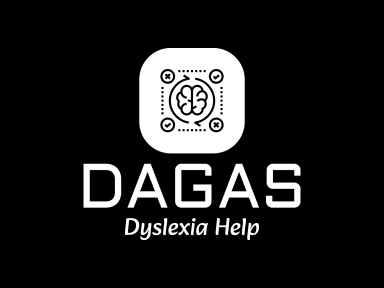Indicators of Dyslexia
One of the key indicators of dyslexia is a history in the family of poor reading and writing skills. Dyslexia is known to run in families, so bear this in mind when thinking about the difficulties you or your child may face.
The following will give you some idea if your child may have a problem with literacy development due to dyslexia.
Dyslexia in very young children (birth to 5 years) is difficult to identify. There are a few factors you can look for in your child that might help you decide to get in touch: For example:
- Your child cannot rhyme or seem to hear rhyme.
- Your child may find learning nursery rhymes hard or impossible.
- Your child may not be able to hold a simple beat/rhythm.
- Your child may like to listen to stories but show no interest in the written word.
There may also be:
- noticeable slower speech development (compared to peers)
- confusion with direction.
- difficulty following simple instructions (or forgetting simple instructions quickly).
- problems with seeming to 'hear' sounds in words.
- muddled sounds in words when speaking.
In the primary are range (5-11) you may notice that:
- Your child is relatively slow (when compared to peers) in speaking and when handwriting.
- Reading may be noticeably slower than peers.
- Your child may struggle to take meaning from stories (showing little understanding or happiness/sadness at a story).
- Your child may have difficulty concentrating and following instructions.
- Your child may see the same word a number of times and read it correctly one time and incorrectly another.
There may also be:
- Difficulty with securing basic phonics, such as alphabet sounds.
- Learning letter names.
- Difficulties with sequencing the alphabet (out loud and in writing)
- problems with learning to spell, you may see that the child misses out sounds in words completely, or gets them muddled.
- Signs that your child is orally bright in comparison to what they can read, write and spell.
- More disorganised than their peers.
In secondary and older children (11-18), you may notice that:
- Your child does not want to join in activities focused on reading and writing.
- Your child is more enthusiastic engagement in discussion or watching media.
- There is lack of showing understanding of what has been read, so if questioned the child would not be able to tell you much about the story.
- Your child will struggle to spell, even when there has been opportunities to learn and over-learn the spellings of words.
- The same words will be spelt or read differently every time.
- Your child will struggle to compose sentences in writing and to organise their writing.
- Handwriting may be messy and untidy.
There may also be:
- Issues with general time awareness and timekeeping, so being late, not being aware of how much time has passed.
- Problems reading maps and direction.
- Issues with following oral instructions of more than one or two simple steps
- general disorganisation.
- You may notice your child becoming withdrawn and losing confidence.
If you are an older student (18 plus) or an adult with dyslexia, you may notice that:
- You still have issues with spelling and writing, you might spell the same word differently every time.
- You may find that your reading has improved, but you need to read slowly and read a text more than once to understand it.
- You may still confuse words that look similar.
- You will struggle with working out the sounds in words you are not used to seeing.
- You will struggle to sequence ideas when writing.
- Your writing may be disorganised.
- You may not be able to read your own writing back.
- You may find that you are more attuned to non-language based activities such as art and music.
There may also be:
- Difficulty in following instructions, especially if they are in a number of steps,
- Issues in remembering appointments.
- Trouble with direction (map reading, directions) and you may find some tasks very easy and others very difficult.
A reminder that the above outlines are not comprehensive but some potential indicators. Do get in touch if you feel you would like a conversation about you or your child/children.
©Copyright. All rights reserved.
We need your consent to load the translations
We use a third-party service to translate the website content that may collect data about your activity. Please review the details in the privacy policy and accept the service to view the translations.
